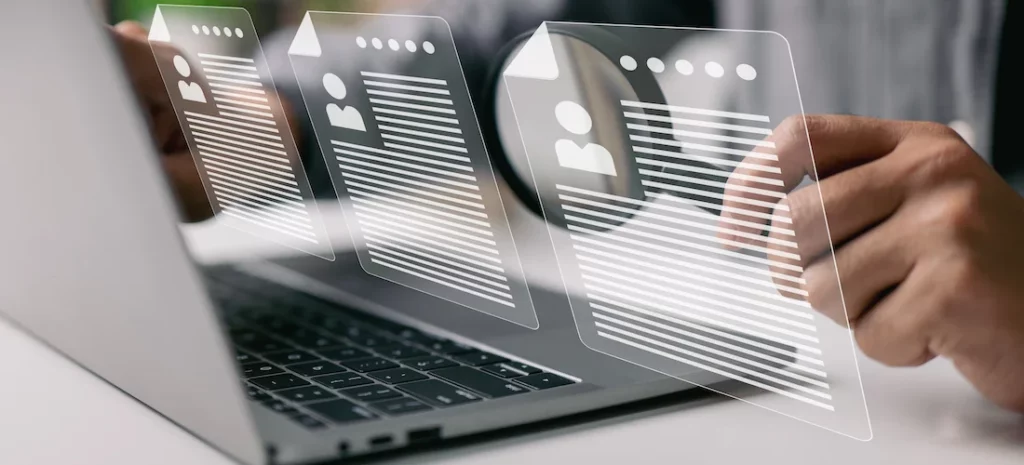Remote Professionals: Your Pathway to a Better Work-Life Balance
Remote Professionals: Your Pathway to a Better Work-Life Balance
Blog Article
Leading Skills Every Remote Professional Needs to Do Well
As remote work continues to reshape professional landscapes, comprehending the important abilities that contribute to success in this setting is increasingly essential. Effective communication, time administration, self-motivation, flexibility, and technological effectiveness are fundamental competencies that can significantly affect a remote expert's performance.
Efficient Interaction Abilities
In today's remote workplace, effective communication skills are necessary for success. The capability to convey ideas plainly and pay attention proactively is critical when teams are dispersed across diverse areas. Strong interaction fosters partnership, decreases misunderstandings, and improves productivity.
A vital element of effective interaction is versatility. Remote specialists should be able to customize their communication designs to match diverse audiences, whether via written reports, video clip telephone calls, or immediate messaging. Remote Professionals. Clearness in composed interaction is particularly important; well-structured files and succinct emails aid stop confusion and guarantee that messages are understood as intended
Moreover, energetic listening plays an essential duty in remote interactions. By demonstrating attentiveness and asking clarifying inquiries, individuals can build connection and trust fund amongst employee, which is essential for preserving a natural work setting.
Additionally, experience with various communication devices is critical. Effectiveness in video conferencing platforms, project monitoring software application, and collaborative applications not just improves communication effectiveness yet also enables seamless teamwork.

Time Administration Strategies
Just how can remote professionals efficiently handle their time in an atmosphere loaded with diversions and contending top priorities? One reliable method is the Pomodoro Strategy, which involves damaging work into intervals, traditionally 25 mins long, complied with by short breaks. This method improves emphasis and lessens burnout, permitting experts to maintain performance throughout the day.

In addition, setting clear objectives and deadlines is important. Developing once a week and everyday purposes cultivates responsibility and gives a feeling of instructions. Making use of digital tools such as project management software can help with job tracking and improve collaboration among group participants.
Self-Motivation Methods
Self-motivation is the driving pressure that enables remote professionals to flourish in a versatile workplace. To cultivate this essential ability, individuals can apply numerous effective methods that foster freedom and productivity.
First, establishing clear, attainable objectives is important. By breaking larger tasks right into smaller, convenient landmarks, remote employees can keep emphasis and experience a sense of success as they advance. This technique not just boosts motivation however likewise gives a roadmap for everyday activities.
In addition, developing a committed work area check my site can considerably affect self-motivation. A designated location devoid of disturbances aids in developing a professional mindset, signaling to oneself that it is time to work.
Regularly organizing breaks is another important method. Brief intermissions aid reenergize power levels and endure focus, preventing fatigue and advertising sustained productivity throughout the day.
In addition, leveraging favorable reinforcement can enhance inspiration. Celebrating little victories or rewarding oneself after finishing tasks can create a positive feedback loophole that encourages ongoing effort.
Ultimately, adopting these self-motivation strategies empowers remote professionals to keep high degrees of performance and contentment in their work, guaranteeing they remain involved and reliable in their functions.
Adaptability and Adaptability
Flexibility and versatility are important qualities for remote experts navigating the ever-changing landscape of remote job. As organizations significantly welcome hybrid versions and shifting top priorities, remote workers must be prepared to readjust to new scenarios with agility. This calls for an attitude that embraces change as opposed to resists it.
Remote specialists commonly encounter differing time zones, diverse team characteristics, and advancing job demands. Those who can pivot swiftly in reaction to these challenges are most likely to preserve efficiency and foster collaboration. Versatility in scheduling can likewise boost work-life balance, permitting specialists to optimize their output while fitting personal commitments.
Additionally, flexibility extends beyond plain timetable adjustment; it includes a willingness to discover and embrace new devices or methodologies as they emerge. Continuous knowing and openness to comments are important components that empower remote workers to grow in uncertain settings. By cultivating these abilities, remote experts not only improve their very own efficiency however additionally add positively to Full Report their teams and organizations.
Technical Efficiency
In the context of remote job, technological effectiveness is significantly vital as professionals rely upon different electronic tools to help with project, partnership, and interaction administration. Mastery of software applications, cloud platforms, and interaction devices is necessary for seamless procedures. This consists of knowledge with video clip conferencing devices like Zoom or Microsoft Teams, job monitoring software program such as Asana or Trello, and collaborative platforms like Google Work space or Slack.
Furthermore, technical efficiency reaches comprehending cybersecurity practices, guaranteeing that delicate information continues to be protected during digital interactions. Remote specialists must also be experienced at fixing usual technical problems, as dependence on innovation suggests that problems can occur all of a sudden. This capacity not just minimizes downtime however likewise contributes to a much more reliable operations.
In addition, staying upgraded on emerging innovations and patterns in Continued remote job can offer a competitive edge, allowing specialists to leverage new tools that enhance productivity. Generally, technological efficiency is a fundamental ability that encourages remote employees to navigate the digital landscape properly, ensuring they can contribute meaningfully to their groups and tasks. In an increasingly electronic world, this ability is not simply helpful; it is crucial for success.
Final Thought
Finally, the successful navigating of remote job atmospheres demands a thorough ability encompassing reliable interaction, adept time monitoring, robust self-motivation, and the ability to adjust to changing conditions. In addition, efficiency in appropriate technological tools is important for preserving efficiency and cooperation. By cultivating these important abilities, remote professionals can boost their performance, foster positive interactions with associates, and eventually prosper within the advancing landscape of remote job.
As remote work continues to improve expert landscapes, understanding the necessary skills that add to success in this setting is significantly crucial.Adaptability and versatility are critical qualities for remote experts navigating the ever-changing landscape of remote work. By cultivating these abilities, remote professionals not only enhance their own performance but likewise contribute positively to their companies and teams.
In the context of remote work, technological effectiveness is significantly important as professionals count on numerous electronic devices to assist in job, partnership, and interaction management. By growing these essential skills, remote professionals can enhance their performance, foster favorable communications with coworkers, and eventually thrive within the advancing landscape of remote work.
Report this page